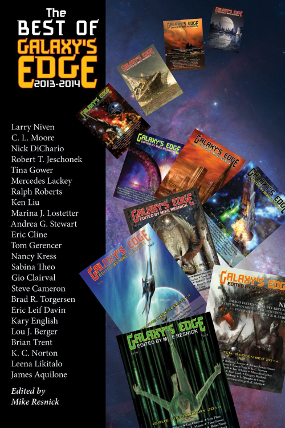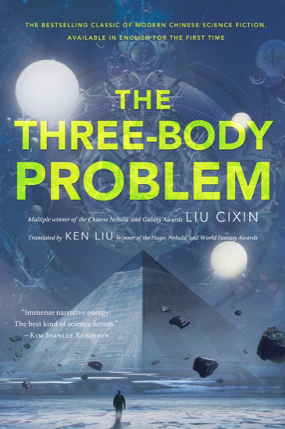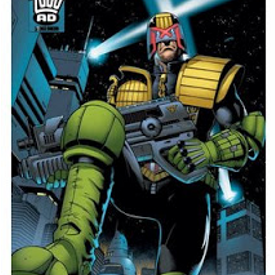
I have to admit that it is a great honor as well as a huge challenge for me to interview Ken Liu. I became a big fan of Ken after reading several of his short stories first translated into Chinese. The Algorithms for Love and Single-Bit Error are still two of my favorite. In 2013, Ken’s first short story collection in Chinese – The Algorithms for Love was nominated and shortlisted for Best Science Fiction Book of Chinese Nebula Award. I was actually the one on the stage to take the trophy for silver award since no one from the publishing house was available. Also in 2013, I wrote two essays on Ken Liu during my study in creative writing master program at Fudan University. Although Ken and I have been Facebook friends for long, I still cannot conceal my respect to him and my love towards his writing. When we finally met each other at Chinese Nebula this year in Beijing, Ken gave me a hug in the western manner instead of a handshake, which is more common in the Chinese manner. Yes, Ken and I always communicate in English online, though his Chinese is also perfect. So we will do the interview in English and later I will translate this into Chinese.
Thanks to Steve Davidson, who made this happen and has worked on having this interview translated into different languages.

 Regina Kanyu Wwang for Amazing Stories: Ken, you said in the foreword of your second collection in Chinese, The Shape of Thought and Others, that you became a published finalist in the Writers of the Future Contest because of Gossamer. And as a published finalist, you were invited to LA to attend a workshop for the winners of the contest, during which State Change was written. Was that the start of your writing career? Have you attended any other writing contests, workshops and etc.? What’s the role of such experience in your writing?
Regina Kanyu Wwang for Amazing Stories: Ken, you said in the foreword of your second collection in Chinese, The Shape of Thought and Others, that you became a published finalist in the Writers of the Future Contest because of Gossamer. And as a published finalist, you were invited to LA to attend a workshop for the winners of the contest, during which State Change was written. Was that the start of your writing career? Have you attended any other writing contests, workshops and etc.? What’s the role of such experience in your writing?
Ken Liu: The WOTF experience was indeed at the very beginning of my writing career. Before becoming a published finalist with WOTF, I had only one sale (“Carthaginian Rose,” to Empire of Dreams and Miracles: the Phobos Science Fiction Anthology, edited by Keith Olexa and Orson Scott Card), and the experience was definitely transformative. I got to meet friends I still talk to today, and I learned a lot about the craft of writing as well as the business side of  writing.
writing.
Since then, I haven’t attended another workshop, though I’ve participated in a few writing contests. I do think contests, especially when they’re explicitly aimed at inexperienced writers, are helpful—the exclusion of “pros” from participation can give new writers a better forum of showcasing their talents.
ASM:You are a very productive writer, especially since 2011. You are also a lawyer, a husband, a father of two children. How do you balance your life among writing, work and family?
KL: I don’t know if I’m doing such a great job balancing everything. It’s certainly exhausting, and I couldn’t possibly have done it without tremendous support from my wife Lisa. She’s been a great sounding board for ideas and first beta reader, and she’s even busier than I am.
Having children has forced me to be a lot more  efficient with my time. Because young children tend to cause a lot of interruptions, I have to be disciplined and say no to most ideas and work only on the ideas that are suitable for short fiction. Since my job is intellectually demanding (and I’m paid by the billable hour), there isn’t a lot of “down time” at work, and I think mental exhaustion is an even bigger challenge than the lack of time for writing.
efficient with my time. Because young children tend to cause a lot of interruptions, I have to be disciplined and say no to most ideas and work only on the ideas that are suitable for short fiction. Since my job is intellectually demanding (and I’m paid by the billable hour), there isn’t a lot of “down time” at work, and I think mental exhaustion is an even bigger challenge than the lack of time for writing.
These days, I tend to do most of my writing on the commute to and from work. That’s basically the only time when I can be alone and focus on writing. My second novel, the sequel to The Grace of Kings, is written entirely in disjointed little chunks composed on the train, and during the editing pass I’ll have to deal with a lot of problems caused by this method of composition.
ASM: The themes of your stories are quite diverse, from history to linguistics, interplanetary contact to mind uploading. And you seem to be proficient in all these disciplines! Where do you get the inspiration and ideas? How do you develop the ideas into  a story and how to research into different fields? Please tell us your writing process.
a story and how to research into different fields? Please tell us your writing process.
KL: When the seed of the story involves a technical detail, nine times out of ten the inspiration was some science paper. I like browsing arxiv.org for interesting new papers on various topics, and I believe that real science provides the best foundation for science fiction. I don’t trust news reports about scientific discoveries—for a variety of reasons, the narratives in much science reporting seem to miss the essence of what’s exciting in a discovery, and the summary of the papers are almost always wrong. I have to go to the original papers and see what the scientists really accomplished.
I’m also lucky to have a lot of friends who are practicing scientists. They’ve been very patient in answering my technical questions and vetting my speculative ramblings.
I don’t have a set method of composition. Ideas tend to sit in my brain for a while until other  interesting ideas come along, and then they bump into each other and create the spark of inspiration. I’m also not an outliner or planner. My stories develop organically, and I use the process of composition itself as a way of thinking through the ideas and paring away the unnecessary bits until the narrative emerges.
interesting ideas come along, and then they bump into each other and create the spark of inspiration. I’m also not an outliner or planner. My stories develop organically, and I use the process of composition itself as a way of thinking through the ideas and paring away the unnecessary bits until the narrative emerges.
ASM: You mentioned Sapir–Whorf hypothesis in The Shape of Thought. Do you support that? If so, which language, English or Chinese, conceptualize your world more? Do you find your way of expressing yourself and your personality different when using different languages?
KL: Weak forms of the Sapir-Whorf hypothesis have received some scientific support (e.g., our color perception seems to be influenced to some degree by our language, and our ability to do mental math seems also to be affected by our language), and my personal experience is that differences in languages can sometimes show up in thinking patterns. For example, when  someone tells me about their “grandmother” or “cousin,” I almost always experience a moment of confusion as I wonder “Paternal or maternal? What ‘kind’ of cousin?” because Chinese kinship terms are far more precise, and the English terms seem to me underspecified. Similarly, when I hear in Chinese something like “有人来了,” I also experience a moment of confusion as I wonder whether we’re talking about one visitor or multiple visitors, something that must be specified in English.
someone tells me about their “grandmother” or “cousin,” I almost always experience a moment of confusion as I wonder “Paternal or maternal? What ‘kind’ of cousin?” because Chinese kinship terms are far more precise, and the English terms seem to me underspecified. Similarly, when I hear in Chinese something like “有人来了,” I also experience a moment of confusion as I wonder whether we’re talking about one visitor or multiple visitors, something that must be specified in English.
But these differences are rather trivial when compared with the grand claims sometimes attributed to the Sapir-Whorf hypothesis: e.g., that one language is more suitable for “abstract thinking” than another or that due to particularities of their language, one population is “incapable” of understanding something. I’m skeptical about most of these grand claims as I think the evidence is simply too flimsy or nonexistent, and they are more likely just-so stories that affirm existing prejudices due to the unequal distribution of power in the world than  anything scientifically sound.
anything scientifically sound.
My ability to express myself in Chinese is very limited. After all, most of my education and my entire professional life have been conducted in English. It is true that friends tell me that I seem “different” when I’m speaking in Chinese versus when I’m speaking in English, but I doubt this is anything more than the kind of simple code-switching experienced by anyone who has moved away from home and then needed to shift between different dialects and registers depending on context.
ASM: How do you define your cultural identity? As an overseas Chinese as well as an American, your writing tends to be different from both. How do you find your intercultural background helpful to your writing?
KL: I’m an American.
I write from and against the Anglo-American literary tradition, and my cultural identity is reflective of the diverse nature of the American experience. As an immigrant like millions of others, I’m endowed with a cultural and literary heritage from my ancestral homeland that has become an indelible part of the American fabric. I also share with every American the enterprise of perfecting our union by giving voice and expression to the marginalized segments of our rich cultural diversity against the historically dominant voices. My work is different from other American writers only in the sense that every American is different from every other American, for such individual difference has been constitutive of what it means to be an American since the days of Alexis de Tocqueville’s visit.
At the same time, I feel very blessed that I am the inheritor of a treasure trove like the Chinese literary tradition and that I have the linguistic and cultural understanding to appreciate both works from China’s long history and its exciting, turbulent, future-oriented present. I think my cross-cultural perspective has enriched my own understanding and given me tools that perhaps other American writers lack, allowing me to engage with a comparatively fuller range of issues in human diversity and globalization.
Finally, I also hope that I can contribute to the grand task of building bridges of cross-cultural understanding between the Chinese and American SF communities.
ASM: You claimed that The Man Who Ended History: A Documentary is one of your best and most important stories, but we all know that it had faced great difficulty to be published. After the novella being nominated for Nebula and Hugo, do you think people have changed their mind on the story and the history? Is your attitude towards the history represented by Akemi Kirino?
KL: I don’t think award nominations or wins do much to change opinion, honestly, and that is as it should be. Every reader should make up their own mind about a work, unencumbered by what others think—though that is perhaps too idealistic. Readers come at specific works with interpretive lenses formed by their own cultural experiences, and I think (and hope) the kind of validation represented by award nominations means absolutely nothing for the vast majority of them. I still believe that the only thing that truly matters is the connection formed between a work and an individual reader.
As for history and my view of it, I think the novella, as a whole, still represents a fairly accurate portrayal of my experience of the complexities and ambiguities of the role of truth and of historiography. I agree with some of Akemi’s views, and disagree with others, and the same is true of the views expressed by the other characters in the novella.
ASM: Apart from writing in English, you also translate Chinese science fiction into English. Your translation is highly praised. The Fish of Lijiang won the Science Fiction & Fantasy Translation Awards for short form in 2012.
The Three-Body Problem is also well received. In your many translations from Chinese into English, which concepts have you found to be the most difficult to translate? Have you found any that were impossible?
KL: I’ve found linguistic differences to be easy, but cultural differences to be hard. Science fiction, especially “hard SF,” tends to be easy to translate, as the scientific concepts and references to science culture are generally shared with Western readers.
Literary Chinese, however, can be replete with fixed expressions and allusions to classical texts and Chinese history whose full meanings are impossible to convey to a non-Chinese reader without footnotes. Works that play meta-fictionally with the Chinese literary tradition are even harder, as the very meaning of the text depends on extensive knowledge of other Chinese texts. I’ve found some of the best works of writers like Fei Dao and Ma Boyong to be impossible to translate because of this feature.
ASM: How do you like the Chinese Nebula this year? What do you think the largest difference between that and an American con? What is your feeling about winning the Galaxy Award for most popular foreign author and the Chinese Nebula Award for your special contribution this year?
KL: Attending the Xingyun Awards in Beijing was an amazing experience. Though I’d corresponded with many of the writers in the past and translated their works, meeting them in person added depth to our friendship. I also got to make many new friends I hope to know better in the future.
It was, in a lot of ways, like attending an American con. The major difference from my perspective was the fact that relatively few of the attendees were writers. At many of the American cons I go to, it seems that most of the attendees are writers.
Winning the awards was very moving to me. I’m humbled by the affirmation they represent, and I hope to create better works in the future to delight my readers. Even more than the awards, however, the camaraderie and supportive atmosphere of the close-knit science fiction community in China impressed me, as did the enthusiasm and passion of the fans. I’m honored and grateful to have been made welcome by everyone and to have been treated as an unofficial member of the community.
ASM: Could you please recommend several Chinese science fiction writers to the Amazing Stories readers?
KL: There are almost too many to list. I would suggest that non-Chinese readers start with Liu Cixin’s The Three-Body Problem, which is the first volume in a hard SF trilogy by China’s most popular and influential genre writer. Tor Books brought out the English translation in November of 2014.
Other writers of note include Chen Qiufan (a.k.a. Stanley Chan), Xia Jia, Bao Shu, Zhang Ran, Tang Fei, Hao Jingfang, Ma Boyong, Cheng Jingbo, Anna Wu—some of their works have been translated by me into English (you can find a list on my web site). Unfortunately, many other wonderful writers from China are not yet available in English, so much work remains to be done.
ASM: What can we expect from you in the future? Your debut novel, The Grace of Kings will be out in 2015. Could you please tell us more about that? Anything else regarding your own writing, translation and future cons?
KL: The Grace of Kings is the first in a planned “silkpunk” epic fantasy series. You can see the cover reveal here: >
The book is based on a loose re-imagining of the historical legends surrounding the rise of the Han Dynasty in a new fantasy archipelago setting. The story might have Chinese roots, but the setting is deliberately not “Chinese” and the narrative techniques I use are mainly taken from Western epics. My wife Lisa and I did a lot of the worldbuilding together, and I had a ton of fun writing the book. This is a world of politics and intrigue, of love purified and corrupted, of rebelling against tyranny and seeing one’s ideals compromised, of friendships forged and sundered by the demands of war and statecraft. There are vain and jealous gods, bamboo airships and biomechanics-inspired submarines, fantastical creatures of the deep, and magical tomes that tell the future written in our hearts. I hope readers have as much fun reading the novel as I did writing it.
ASM: Thank you for taking the interview! And hope to see more of you in the future! Yes, the same words you signed for me on your book : )
KL: Absolutely! It’s always a pleasure to talk to you, and I hope we get to meet more often in the future!
Please read more about Ken Liu on his homepage: https://kenliu.name/
Ken also publishes a monthly email. You can sign up here









